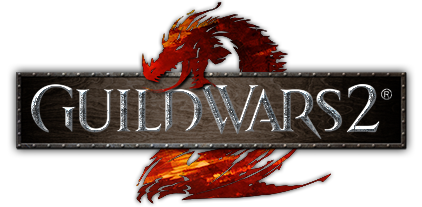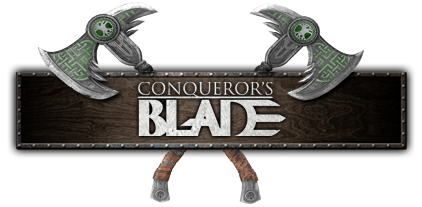ORvR Leadership Series: Weapons Of WAR Part 3: Orchestrating The Battlefield
By: Foghladha
In the past two parts of my oRvR Leadership series we discussed Morale Control and Using Greed as a weapon. In part three we look at combining these essential skills into conducting the warfront. The warzone is your symphony and the battle will be your masterpiece. You can be the best and lead a flawless victory every time however there is a Golden rule I teach everyone that follows my lead. "Never beat an opponent so bad they don''t want to play you." There is nothing worse than having an empty battlefield.
By becoming a oRvR Leader and taking the reigns of the public warforce you start by building a reputation. Some people lead by barking orders and floundering around like child in a toy store. Some lead by calm and collected design. Regardless of how you lead. Your success is based off Memories. Much like a product brands itself to claim brand recognition. The second your name hits the chat log you need to have memories of victories past flood the minds of your troops. Obedient troops are direct result of your success on the battlefield and how many positive memories you have given them.
Now if the Battlefield's lay empty and victories are effortless nothing will be remembered. That which is remembered is the battles you should have lost. Those that you were out gunned out manned and had all the cards against you. It's only in your darkest moment that you have the most potential to shine. If you defeat a foe that is weak and insignificant it is a expected victory, however if you defeat a foe, who's army is grander than your own you will become legend.
So how do we create these situations where we can find great battles yet control them to our advantage? This my friend is the art form that will earn you reputation. It is a gamble and sometimes the cards will land the wrong way. This is to be expected. There are a few things that we will need to master before we can conduct a grand symphony. To master you will need to watch and learn from your opponent.
We Are All Creatures Of Pattern
Wake up, shower, brush teeth, get dressed, make breakfast, Facebook/Tweet, grab briefcase, start car, get Starbucks, arrive at work. Rinse and repeat. From the time we are born everything we do follows a pattern. The human mind functions best with repetition. You practice for a day you might learn a new skill, you practice for 10,000 days and you will become a master.
Now on a battlefield Repetition is the sign of an untrained warforce. A lot of times by watching your enemies take objectives unopposed you can reveal their pattern. Do they take the Battlefield Objectives first, or the Keeps first? Do they double cap objectives or single cap objectives? Do they stick to the next closest objective or do they move far side? If you take an objective do they flood that objective with everything they got or do they stay small and collected? What are their common travel routes? These are all things you need to observe before engaging the enemy. Their pattern will become their demise and you must know how your enemy will react to any given situation you throw at them before you engage them.
Building Overconfidence
You opponent is most dangerous when he''s backed into a corner expecting a fight. When someone has nothing to lose they have the most potential to surprise. If you conduct your symphony well you have your opponent thinking they've won, that they are untouchable, that defeat is simply not possible. Over confidence is the most common mistake in war. When your confident your shoulders broaden, your vision narrows, and you feel as though nothing can hurt you. This is where we want our opponent. This is what you will use to setup the "Flip the Grid".
Flipping the Grid
The art of allowing the opposing side to take land to build their morale, increase their troop numbers and become over confident in their abilities. By doing this correctly you will leave the enemy with a "What the hell just happened?" while your troops will rejoice and have the morale to wipe your foe from the planet. Chaos is your friend, casting chaos on your enemy is key to success.
Once you believe they are of formidable size you flip the grid. Divide your force into several smaller units and attack all of the objectives at once. This newly found over confident force will have to scramble to stop your force from taking everything it just built. In the time it takes them to decide what to do and travel to where they need to be most of the fortifications will be taken. A lovely side effect of this is that your numbers will be over exaggerated. Even if you have the smaller force, attacking multiple targets at the same time causes your enemies to fear what is out there. They often will over exaggerated your numbers vastly. There have been times when I've led 2 warbands (48 people) and my opponents had 5 yet they cry out that we were 7 or 8 warbands in size. This is the effect your shooting for. This effect is the Awe in shock and awe.
They likely will decide to save one objective. This is when you damage the fortifications as much as possible and deploy the Icing tactic.
Icing Your Opponent
While your enemies fortify themselves in a keep pull your force away and start taking objectives one by one. If you have the numbers stack a warband or so nearby in a un-traveled location where they quickly can breach and seal off the curious forces. By taking one objective at a time you force the opponent to wait. Now patience is not a trait of the over confident who just had the carpet ripped from under them. When you tear down an over confident foe, desperation kicks in. They are hungry to prove their worth and will make unplanned deviations to their strategy. This is why we Ice.
We draw out the inevitable until they make a poorly decided upon move to both quench their greed and their bloodlust. Once they've made that move call in your hidden warforce to take position inside their fortification. Now your over compensating warlord on the other side will see 2 objectives at hand. If he scrambles back to the keep half their force will not follow as the greed and bloodlust has set in. This will reduce their force in size and allow you to roll over the top of the remaining attackers and move into position to siege the fortification this time with half the force defending. This typically will result in Rage. Once a player has hit rage, they will be erratic and uncontrollable. They will rip their own side apart from within and some will simply quit.
By taking this last fortification you will have a battle that your troops will remember and associate with your leadership. Your foes morale will be destroyed many of them will quit and the resistance you built for them will be thinned drastically. From there you should be able to clean house with the remaining force with ease.
The objective with orchestrating a battlefield is to be remembered. It's all part of brand awareness. Your character and leadership is your product and your followers are you customers. If you can lead with organization, calmness, and unprecedented victories while casting chaos, and the illusion of control upon your enemies you can lead your foes by the hand to spell their own demise.
In the next part of my series, we will change gears a bit and discuss the in's-and-out's of leading a public warforce. A skill known by many as "Cat Herding".















